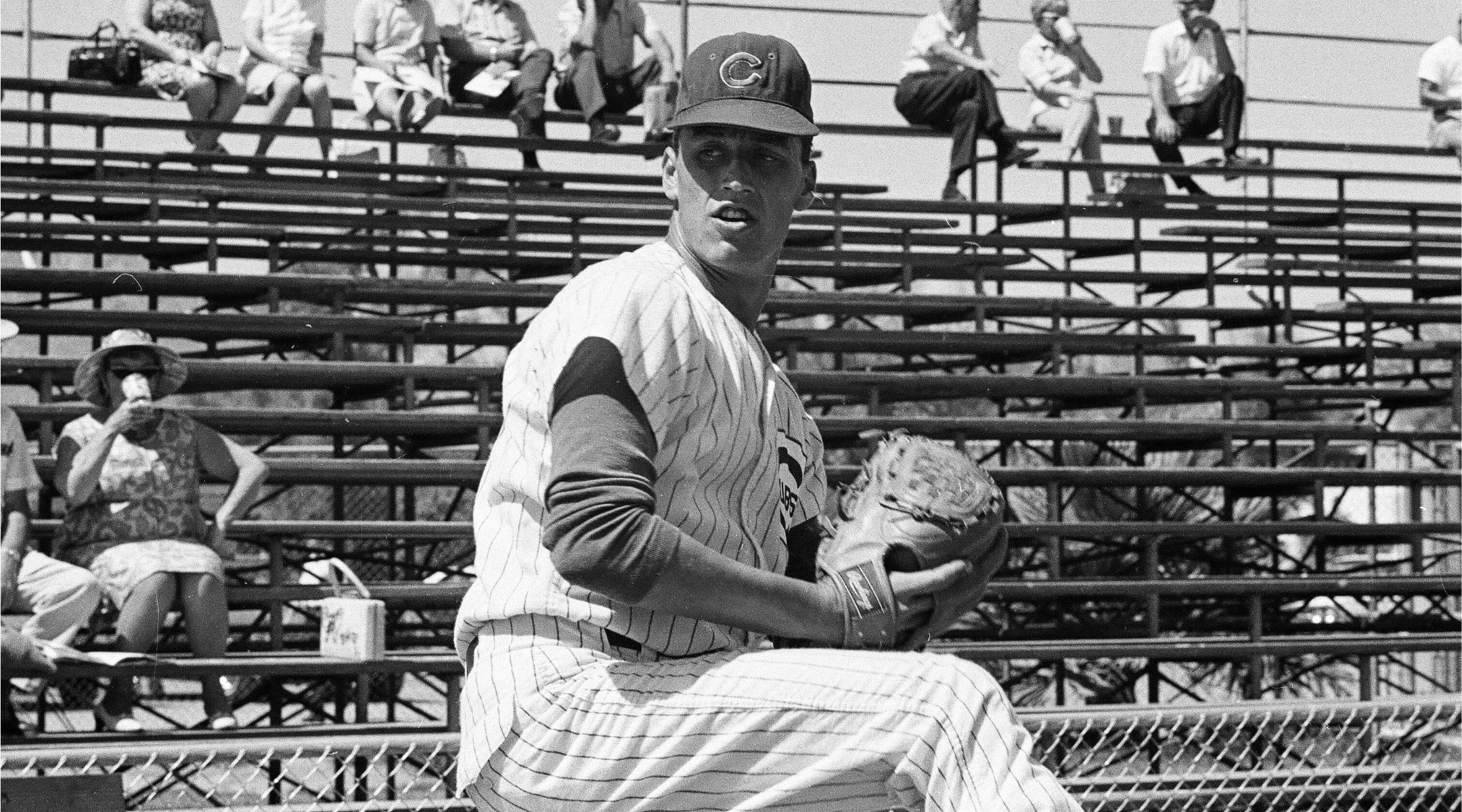Ken Holtzman, winningest Jewish pitcher in MLB history, dies at 78
He would later work at a local JCC and as a manager in Israel’s short-lived professional baseball league

Ken Holtzman pitching for the Chicago Cubs during the 1968 season. (Sporting News via Getty Images)
(JTA) — Ken Holtzman, the winningest Jewish pitcher in baseball history, died Sunday night at 78 years old.
The MLB veteran threw two no-hitters, won four World Series rings and beat Sandy Koufax head-to-head once across 15 seasons in the 1960s and 1970s. He had been hospitalized for three weeks with heart issues, his brother Bob told the St. Louis Post-Dispatch.
He would later work at a local JCC and as a manager in Israel’s short-lived professional baseball league — though he quit before the season ended, citing poor conditions.
Holtzman was drafted by the Cubs in the first-ever MLB Draft in 1965, and went on to play for the Cubs in two stints; the Oakland Athletics, where he won three consecutive titles from 1972-1974; the Baltimore Orioles; and the New York Yankees, where he won his fourth ring in 1978 despite not appearing in the series. He was a two-time All-Star.
We are deeply saddened by the passing of former Cubs pitcher Ken Holtzman.
Ken was a Cub from 1965-1971 and 1978-1979. He posted a 3.76 ERA in 237 games with the club, including two no-hitters, cementing himself as one of the best left-handed pitchers in Cubs history.
We send… pic.twitter.com/T13qpWy48a
— Chicago Cubs (@Cubs) April 15, 2024
In a post announcing Holtzman’s passing on Monday, the Cubs remembered him as “one of the best left-handed pitchers in Cubs history.”
As a young Jewish lefty pitcher breaking into the big leagues in 1965, Holtzman often drew comparisons to Los Angeles Dodgers great Sandy Koufax, who was in the midst of a dazzling stretch of dominance that concluded with his retirement in 1966.
On Sept. 25, 1966, in Koufax’s penultimate regular season start, the two lefties faced off in what the Jewish Baseball Museum considers to be the first-ever matchup between two Jewish starting pitchers. (It’s only happened five times; Holtzman was involved in three of them.)
Both pitchers threw complete games, and both had only one earned run — though the Cubs scored another unearned run, giving Holtzman the win over Koufax that day. He was the last pitcher to beat the Hall of Famer during the regular season. Holtzman would end his career with 174 wins, nine more than Koufax. He also racked up 1,601 strikeouts, second to Koufax (2,396) among Jewish pitchers, and a 3.49 ERA.
Holtzman retired after the 1979 season and earned four Hall of Fame votes in 1985 and five in 1986. He is a member of the St. Louis Jewish Sports Hall of Fame, the International Jewish Sports Hall of Fame and the Chicago Cubs Hall of Fame.
After his playing career ended, Holtzman, a St. Louis native, worked at his hometown JCC, running the gymnasium and coaching the JCC’s Maccabi baseball teams.
Holtzman also managed the Petach Tikva Pioneers in the Israel Baseball League’s first and only season in 2007, though he left during the season because of disagreements and disappointment over the state of the league.
At the beginning of the season, according to coverage at the time in the Israeli news site Walla, Holtzman expressed hope that the IBL could popularize baseball in Israel in the same way basketball had gained a following there. But his optimism appeared to have vanished as the season got underway. In an interview translated into Hebrew for Walla, he said the players wouldn’t be able to make it in the United States, denigrated the ballparks and predicted (accurately) that the league would fail. Walla reported that the game that day drew only 30 or 40 fans.
When Holtzman quit near the end of the season, his team, the Petach Tikva Pioneers, had a record of 7-31. They finished in the cellar of the six-team league, eight games behind the fifth-place team.
“He is a big boy,” IBL Commissioner Dan Kurtzer said upon Holtzman’s departure, according to the Jerusalem Post. Theres no hard feelings on our side. He came out here and it wasn’t easy to leave his family and other activities.”
Fanchon Auman, who chaired the St. Louis JCC’s sports recreation and aquatics department from 1993 until 2016, told the Jewish Telegraphic Agency that Holtzman’s name recognition helped bring people into the building, and that he was a valued member of the team.
“People were very proud to have him as a figurehead and as part of our department,” Auman said. “Everyone was very proud to have him in our community.”
This article originally appeared on JTA.org.














